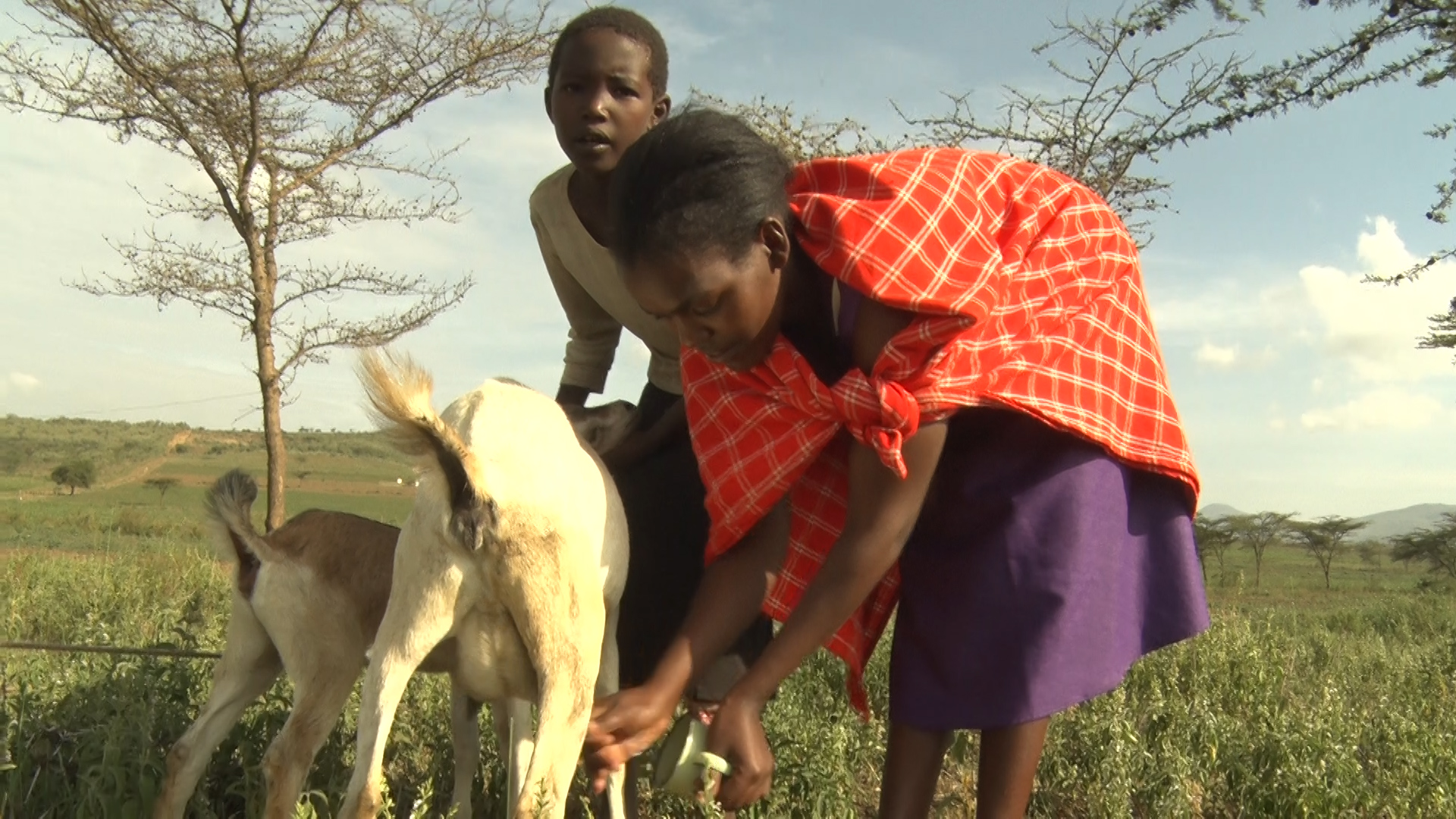Ruth Senjo, 20, a survivor of Female Genital Mutilation (FGM) has dedicated her life to teaching parents and young girls to abandon the retrogressive cultural practice that is rampant in the area.
When KNA visited Ms. Senjo at her home in Suswa area, Narok East Sub County where she narrated her painful experience, she was busy preparing a meal for her husband and children.
She says her father had five wives with her mother being the youngest. In her mother’s house, there were seven children and Ms. Senjo was the fifth born child.
“My father had many children such that every time I greeted him, I had to introduce myself. Life was too difficult such that it was difficult to place a plate of food on the table,” she recalls.
When she was five years old, the young woman recalls being taken to live with her grandmother several kilometers away from home.
Life was not any better for Ms. Senjo as her grandmother too had children who were depending on her hence going to school remained a dream to her.
“My grandmother was a charcoal dealer. I would accompany her as we went to source for charcoal and sell at the road side. I used to admire children who went to school,” she recalled.
She says her caring grandmother saw her passion for education and sacrificed to buy her uniform and took her to school.
However, the days she did not go to school were more than those she spent in class as they could not afford a monthly fee of Sh300 that the school demanded.
She was forced to hawk tomatoes that she got from farms to the neigbouring homes so that she could pay for her school fees.
“Life was extremely difficult. Though my grandmother was very much willing to see me in school, she could not afford to pay the monthly Sh300,” she said.
When she was 12-year-old and in class five, her parents summoned her to go back home with a promise they would hold a big homecoming ceremony.
Since she left her home at a tender age, she had never visited her parent’s home and this time round wondered why they were so interested in her.
When she got home, she found many people in her father’s compound who looked happy and welcomed her on a high note.
It was then that the women held her and took her into the house and without her consent, undressed and cut her forcefully.
Ms. Senjo recalls the cut was so painful that she could not stand on her own, making the women carry her and lay her on a bed where she bled freely for several hours.
“It is by God’s grace that I am alive because I bled profusely after the cut. The women tried doing the traditional first aid to me. They tied my legs and fingers as I lay on the bed and miraculously, I was healed,” she says.
After healing, she was reminded that she was now woman enough and she was free to get married or have children as it was acceptable in the community.
“Despite their advice, I had a strong passion for education that forced me to move back to my grandmother’s homestead to continue with my studies,” she recalls.
Nevertheless, she did not stay for long with her now aging grandmother who was really struggling to make ends meet.
She says after one year, her grandmother blessed her and sent her back to her parents’ home so that they could continue educating her.
This did not happen as immediately her father heard of her arrival, he organized for her marriage and within a few days, she was forcefully married off to an elderly man at the age of 15.
Her marriage killed her childhood dream of becoming a teacher as she completely lost hope in going back to school.
However, since then, Ms. Senjo, a mother of three, has been moving around the village teaching parents and young girls to shun FGM that she attributes to her failure in life.
“Though I came from a poor background, I believe if I was not forced into the cut I would have completed my studies because I could not have been married off at an early age,” she says.
Florence Lempaka, her friend and mentor, says she has been close to Ms. Senjo to encourage her and give her hope in life despite the challenges she has faced.
“She used to stay indoors. I spoke to her and told her it was not over. She could not work because she was very frustrated. I taught her business and farming. She has bought goats and now she is teaching young people on the dangers of FGM,” said Ms. Lempaka.
Together, they have been teaching the young girls to say no to retrogressive culture that is outdated and does not benefit them.
Narok Gender officer Agnes Ngeno says the practice was still rampant in the county though the community has changed tactics to avoid being arrested by the police.
“Some families are taking their girls to their relatives living in far counties to be cut while others do the cutting during male circumcision period to avoid spiculation,” Ms. Ngeno observes.
President Uhuru Kenyatta committed to ending the vice by the year 2022 through a presidential declaration in June 2019.
